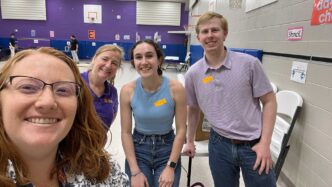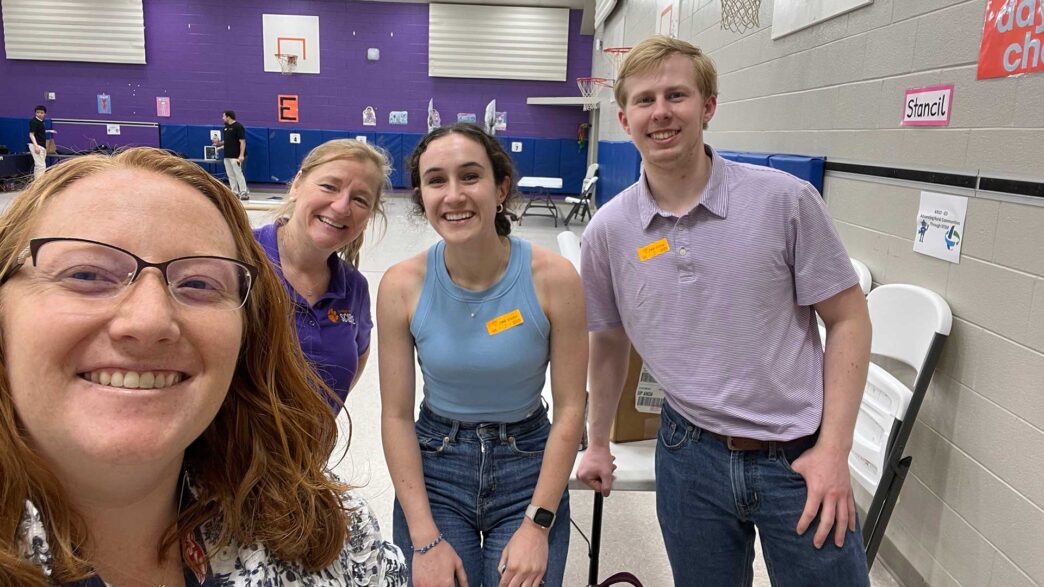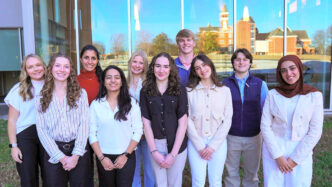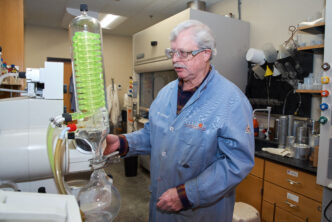What began as a competition entry for a group of Clemson University Honors College students has evolved into a nonprofit initiative called ARCS-Ed (Advancing Rural Communities through STEM Education), aimed at transforming how middle schoolers across South Carolina engage with science.
Biological sciences major Elizabeth “Mercy” Crapps and biochemistry major Ryan Mehlem co-founded a 501(c)(3) nonprofit that provides interactive STEM education toolkits and experiments to schools and youth programs. The project, rooted in their shared passion for educational access, connects college students with young learners to deliver high-impact science experiences.
“There are students across South Carolina with the potential to change the world. They just need someone to ignite that spark early,” said Crapps, who recently helped deliver STEM programming at schools including James M. Brown Elementary and Robert Anderson Middle School.
The program was designed as an entry to a statewide competition program led by the Electric Cooperatives of South Carolina encouraging students to create solutions for pressing social and economic problems in rural areas.
The team, which included fellow Honors student and biological sciences major Natalia Nortz, designed hands-on experiments such as CO₂-induced color changes and a flaming dollar bill demonstration to help demystify science and make it memorable.
All three students are Dixon Global Policy Scholars, an Honors program that emphasizes interdisciplinary thinking and the examination of significant national or global issues. That background, Nortz said, shaped their commitment to science education and informed the statewide scope of their nonprofit’s mission.
Their submission won each student in the group a $1,000 prize. Since then, Crapps and Mehlem have led interactive sessions for students from kindergarten through high school and are now expanding their outreach with the help of student volunteers.
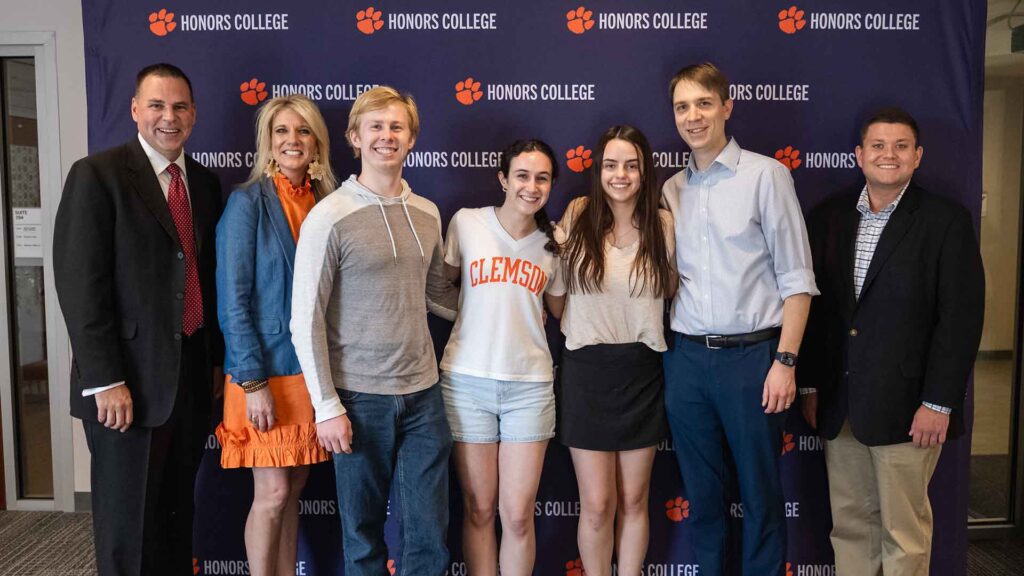
“This initiative is our way of giving back and paying forward the opportunities Clemson gave us,” said Mehlem. “It’s about making STEM accessible and exciting for every student, no matter their ZIP code.”
With legal nonprofit status secured, a website launched and school partnerships in place, Crapps and Mehlem are inviting Clemson students and others from universities statewide to volunteer or replicate the model in their communities.
“Our dream is that this becomes something bigger than us,” Crapps added. “We want to see Clemson students leading change by bringing what they’ve learned home to inspire the next generation.”
The students are currently applying for additional grants and seeking donations to help grow their inventory of science kits and materials. They ultimately hope to build a network of peer-led STEM engagement across the state and beyond.
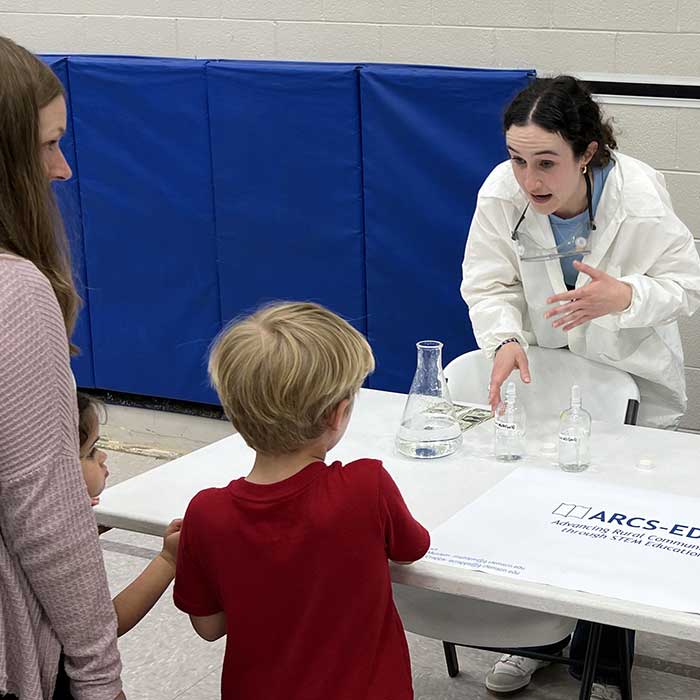
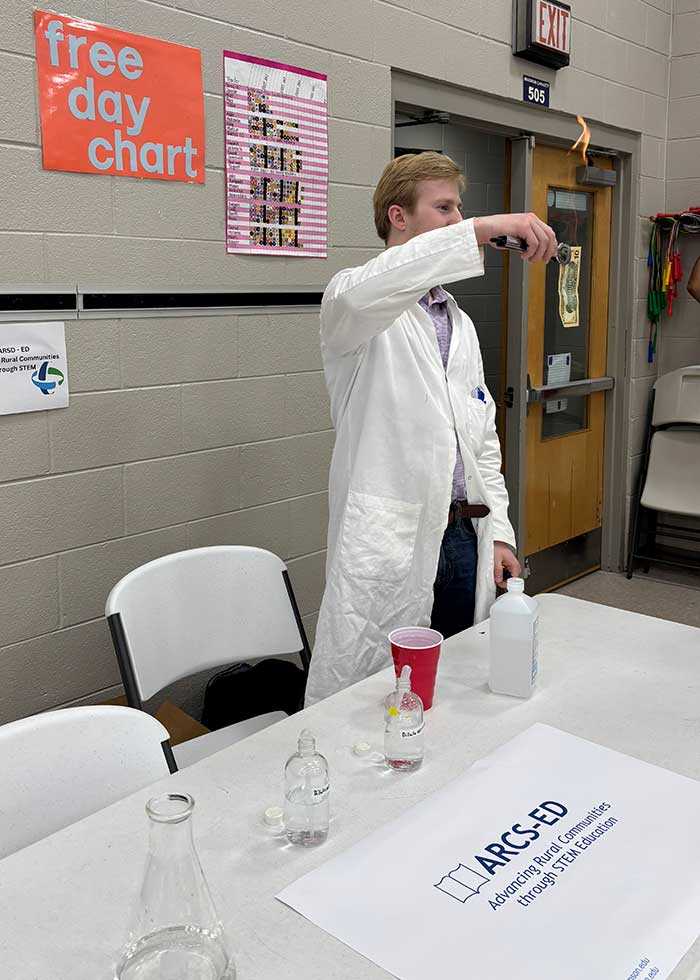
To help guide the initiative’s growth, Crapps and Mehlem established an advisory board that includes:
- Anna Baldwin, executive director of eLearning and integration at Anderson School District Five
- Courtney Sheriff, treasurer of ARCS-Ed, fourth-grade teacher at James M. Brown Elementary and adjunct professor at Anderson University
- Donna Scruggs Buss, program coordinator for the Clemson University Science Outreach Center
Mehlem credits the board with ensuring community needs remain central as the organization expands.
Jeff Fine, senior associate dean of the Honors College and director of the Dixon Global Policy Scholars Program, praised the initiative as a model of Honors education in action.
“Mercy and Ryan reflect the spirit of what we hope to inspire in all Honors students — curiosity, courage and a drive to make a difference,” said Fine. “Their work is a powerful example of students applying what they’ve learned to address pressing problems, which is central to the Clemson Honors experience.”
Learn more about the initiative and how to get involved by visiting the student team’s website: https://www.arcs-ed.org/ or completing the organization’s volunteer interest form.

